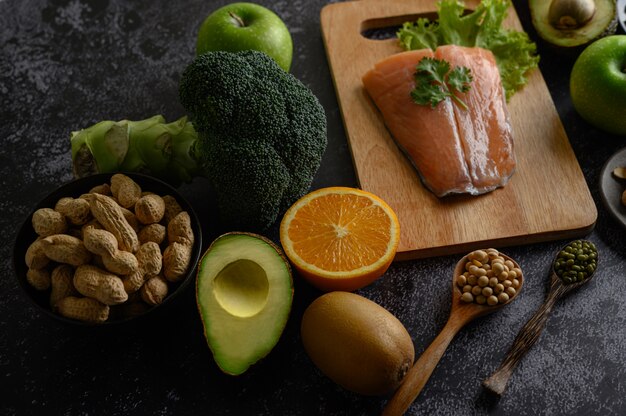Ask Ayurvedic doctor a question and get a consultation online on the problem of your concern in a free or paid mode. More than 2,000 experienced doctors work and wait for your questions on our site and help users to solve their health problems every day.
Vitamin D in Ayurveda – Natural Ways to Enhance Vitamin D Levels for Optimal Health

Introduction to Vitamin D in Ayurveda
Vitamin D, often referred to as the "sunshine vitamin," plays a vital role in maintaining bone health, immune function, and overall vitality. In modern medicine, vitamin D deficiency has been linked to various health issues, including osteoporosis, weakened immunity, and mood disorders. Ayurveda, the ancient system of natural healing, also recognizes the importance of this vital nutrient, particularly in the context of promoting Ojas (vital energy), strengthening the bones, and enhancing mental clarity. This article delves into Ayurvedic views on vitamin D, its importance for overall health, and natural ways to enhance vitamin D levels through diet, herbs, and lifestyle changes.
Don't wait or self medicate. Start chat with Doctor NOW
Historical Roots & Ayurvedic Significance
While the concept of "Vitamin D" as we know it today was not described in ancient Ayurvedic texts, the significance of sunlight and its effects on health have been understood for centuries. Ayurveda emphasizes the importance of a balanced lifestyle, which includes proper exposure to sunlight, a nutritious diet, and healthy habits to maintain vitality and prevent diseases. Sunlight is considered a natural source of Prana (life force) and is believed to nourish the Sadhaka Pitta (a subdosha of Pitta), which governs mental clarity and emotional stability. Vitamin D, which is primarily synthesized through sun exposure, aligns with this Ayurvedic principle, as it supports both physical and mental health.
Vitamin D and Its Role in Ayurveda
In Ayurveda, vitamin D is seen as essential for maintaining bone health, Agni (digestive fire), and the body's overall balance. A deficiency in vitamin D may lead to a weakened immune system, digestive issues, and imbalances in the doshas, particularly Vata dosha, which is responsible for movement and stability. Adequate levels of vitamin D are believed to help:
- Strengthen bones and teeth: Vitamin D promotes the absorption of calcium, a key component of bones and teeth.
- Boost immunity: Vitamin D helps regulate immune responses, preventing chronic inflammation and infections.
- Enhance mental clarity and mood: Proper levels of vitamin D support the function of Sadhaka Pitta, improving emotional health, mental clarity, and cognitive function.
- Balance the doshas: Vitamin D supports the balance of the three doshas—Vata, Pitta, and Kapha—by nourishing the tissues and maintaining physical and mental harmony.
Key Ayurvedic Approaches to Boosting Vitamin D Levels
Ayurveda focuses on a holistic approach to health that includes a balanced diet, herbal remedies, and lifestyle practices to optimize vitamin D levels naturally. Below are some key Ayurvedic strategies:
1. Sun Exposure (Surya Namaskar)
In Ayurveda, sunlight is considered a powerful natural source of Prana (vital energy) and Ojas (vital essence). Sun exposure is the most natural way to increase vitamin D levels, as the skin synthesizes vitamin D when exposed to sunlight. Ayurvedic wisdom encourages daily morning sunlight exposure for about 15-30 minutes, depending on your skin type and geographical location. This not only helps in the synthesis of vitamin D but also rejuvenates the body and calms the mind.
2. Diet to Support Vitamin D Synthesis
While vitamin D is mainly obtained through sunlight, certain foods in Ayurveda are believed to support its synthesis and enhance its bioavailability in the body. Some foods that can naturally support vitamin D levels include:
- Ghee: Known for its nourishing and rejuvenating properties, ghee is an excellent source of fat-soluble vitamins, including vitamin D.
- Milk and Dairy Products: Organic, full-fat milk, yogurt, and paneer are rich in vitamin D, especially when sourced from cows that are allowed to graze in sunlight.
- Eggs: Particularly egg yolks, are a rich source of vitamin D and provide essential fatty acids that support absorption.
- Fish: Fatty fish like salmon, mackerel, and sardines are excellent sources of vitamin D and omega-3 fatty acids.
- Fortified Foods: Some Ayurvedic preparations include fortified foods such as whole grains, nuts, and seeds that can provide a source of vitamin D.
3. Ayurvedic Herbs and Supplements
Ayurvedic herbs can support vitamin D synthesis and enhance its effectiveness in the body. Some key herbs that promote bone health and support the body in absorbing vitamin D include:
- Ashwagandha (Withania somnifera): Known for its adaptogenic properties, Ashwagandha helps in balancing Vata dosha, promoting vitality, and supporting bone health.
- Guggulu (Commiphora wightii): Guggulu is a powerful anti-inflammatory herb that supports healthy bones and joints and can enhance the body’s ability to utilize vitamin D.
- Bala (Sida cordifolia): This herb is used in Ayurveda to support physical strength, stamina, and bone health.
- Triphala: Triphala, a combination of three fruits, is often used for detoxifying the body and improving digestive health, which in turn supports the absorption of nutrients, including vitamin D.
- Shatavari (Asparagus racemosus): Known for its rejuvenating properties, Shatavari is particularly beneficial for women’s health and can support overall vitality.
4. Lifestyle Practices for Vitamin D Absorption
Apart from diet and herbs, Ayurveda emphasizes various lifestyle practices to support overall health and the absorption of vitamin D:
- Regular Physical Activity: Daily exercise, including yoga and walking, stimulates circulation and promotes the proper synthesis and distribution of vitamin D throughout the body.
- Balanced Sleep: A regular sleep routine supports overall well-being and helps maintain a healthy circadian rhythm, which is essential for optimal vitamin D absorption.
- Stress Management: Practices such as meditation, pranayama (breathing exercises), and mindfulness help reduce stress, which is essential for maintaining the balance of Pitta dosha and supporting mental clarity, as well as the body’s ability to metabolize nutrients.
How Ayurveda Addresses Vitamin D Deficiency
Ayurvedic practitioners address vitamin D deficiency by balancing the doshas, improving digestion (Agni), and nourishing the tissues. A deficiency in vitamin D can lead to an imbalance in Vata dosha, causing issues like joint pain, fatigue, and weakness. Ayurveda focuses on:
- Restoring Agni: Strengthening the digestive fire ensures better absorption of nutrients, including vitamin D.
- Detoxifying the Body: Panchakarma therapies, such as Virechana (purgation) and Basti (medicated enema), help remove toxins (Ama) and improve nutrient absorption.
- Promoting Ojas: By balancing the doshas and supporting healthy digestion, Ayurveda promotes the production of Ojas, which enhances vitality, immunity, and overall well-being.
Recommended Dosage & How to Use Ayurvedic Remedies for Vitamin D Deficiency
The dosage of Ayurvedic remedies to support vitamin D levels will vary depending on the individual's health condition, dosha balance, and specific formulation. It is important to follow the guidance of an Ayurvedic practitioner for the correct dosage. However, general guidelines include:
- Herbal Supplements: Herbs like Ashwagandha, Guggulu, and Triphala can be taken in powdered or capsule form. Typically, 1-2 grams of powder or 1-2 capsules per day are recommended, depending on the specific herb.
- Dietary Changes: Incorporating vitamin D-rich foods like ghee, eggs, milk, and fatty fish into your diet can significantly enhance vitamin D synthesis.
- Sun Exposure: Aim for 15-30 minutes of direct sunlight exposure each morning to naturally synthesize vitamin D.
Potential Side Effects & Precautions
While Ayurveda offers a natural and holistic approach to enhancing vitamin D levels, it is important to keep the following in mind:
- Consult an Ayurvedic Practitioner: Before taking any new supplements or making significant changes to your diet or lifestyle, it is important to consult an Ayurvedic practitioner to ensure the remedies are appropriate for your constitution and health condition.
- Sun Exposure: Excessive sun exposure can lead to sunburn and increase the risk of skin damage. It is important to balance sun exposure with protective measures.
- Dosage: While vitamin D is essential for health, too much can lead to toxicity. Ensure you are not over-consuming fortified foods or supplements, and follow the recommended dosage.
Frequently Asked Questions for Vitamin D in Ayurveda
How does Ayurveda support vitamin D absorption?
Ayurveda supports vitamin D absorption by strengthening Agni (digestive fire), detoxifying the body, and incorporating specific herbs like Ashwagandha and Guggulu, which promote bone health and nutrient absorption.
Can sunlight alone provide enough vitamin D in Ayurveda?
Yes, sunlight is considered the most natural source of vitamin D in Ayurveda. Daily exposure to morning sunlight for 15-30 minutes helps synthesize vitamin D, which is crucial for bone and immune health.
What foods should I eat to increase my vitamin D levels naturally?
Foods like ghee, dairy products, eggs, fatty fish, and fortified grains are excellent sources of vitamin D in Ayurveda.
Can Ayurvedic herbs help with vitamin D deficiency?
Yes, herbs like Ashwagandha, Guggulu, and Triphala can help improve the body’s ability to metabolize vitamin D, support bone health, and enhance overall vitality.
Is vitamin D deficiency common in Ayurveda?
While Ayurveda emphasizes a holistic lifestyle, vitamin D deficiency can still occur due to factors such as lack of sunlight, poor diet, and imbalances in the doshas, particularly Vata and Pitta.
What are the signs of vitamin D deficiency in Ayurveda?
Signs of vitamin D deficiency in Ayurveda may include fatigue, bone pain, joint stiffness, and mood swings, often linked to an imbalance in Vata dosha.
Where can I find Ayurvedic remedies for vitamin D deficiency?
Authentic Ayurvedic remedies for vitamin D deficiency can be found at certified Ayurvedic pharmacies, through Ayurvedic practitioners, or reputable online Ayurvedic stores.
Conclusion & Expert Insights
Vitamin D plays a crucial role in maintaining bone health, immunity, and mental clarity. Ayurveda offers a holistic approach to boosting vitamin D levels by encouraging proper sunlight exposure, a balanced diet, and the use of beneficial herbs. By following Ayurvedic principles and seeking personalized advice from an Ayurvedic practitioner, individuals can naturally support their vitamin D levels, promote overall health, and achieve a harmonious balance in both body and mind.
References & Further Reading
- Lad, V. (2002). Ayurveda: The Science of Self-Healing.
- Sharma, P.V. (1995). Charaka Samhita.
- Journal of Ayurveda and Integrative Medicine for research on nutrition and vitamin D.



